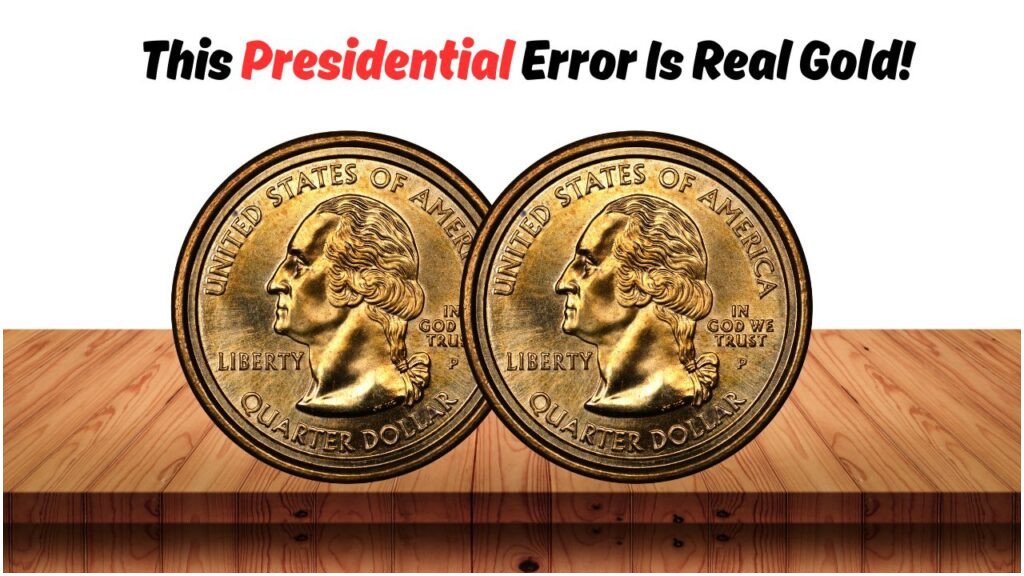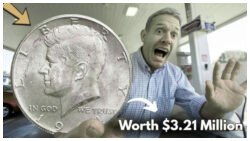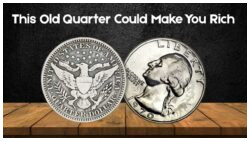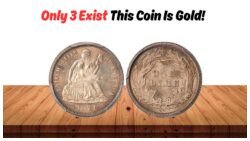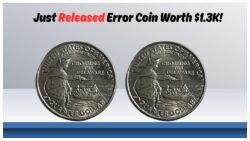Sacagawea Dollar – If you’ve ever dismissed the golden-colored Sacagawea dollar as just another coin in your change, think again! A rare Sacagawea dollar coin with a stunning error involving a Presidential design recently fetched a jaw-dropping $112,000 at auction. Let’s dive into why this coin is so valuable, how this error happened, and how you might be holding a small fortune in your pocket change without even knowing it.
What Is the Sacagawea Dollar?
The Sacagawea dollar was first released in the year 2000 by the U.S. Mint. This golden-colored coin features:
- Obverse (Front): A portrait of Sacagawea, the Native American woman who helped guide the Lewis and Clark expedition.
- Reverse (Back): Initially featured a soaring eagle; later years introduced new reverse designs.
It was made of a manganese-brass alloy to give it a gold look but held the same value as a typical $1 coin.
What Is the Presidential Dollar Coin?
In 2007, the U.S. Mint launched the Presidential $1 Coin Program, featuring every deceased U.S. President in the order they served. These coins:
- Also used the same golden color and size as the Sacagawea dollar.
- Featured edge lettering with the year of issue, mint mark, and inscriptions like “E PLURIBUS UNUM” and “IN GOD WE TRUST.”
The program ran until 2016, and millions of coins were minted for circulation.
The $112,000 Mistake – The Mule Error
So what makes the $112,000 Sacagawea dollar so special? It’s a mule error – an extremely rare mistake where mismatched coin dies are used in production.
Here’s what happened:
- Obverse (Front): Shows Sacagawea, just like a normal Sacagawea dollar.
- Reverse (Back): Instead of the soaring eagle, it has a reverse intended for the Presidential dollar coin – a mismatch never meant to happen.
Why is it valuable?
- Only a few specimens are known to exist.
- Coin collectors and numismatists go wild over mule errors.
- The combination of historical figures and a minting mistake adds massive intrigue and value.
How Many of These Rare Mule Errors Exist?
Experts estimate that fewer than 20 verified pieces of this Sacagawea-Presidential mule error are known to the numismatic world. One of these sold at auction in 2024 for $112,000, breaking previous records.
In fact:
- Some of the first ones were discovered in 2000 by a coin dealer.
- Since then, only a handful have surfaced, each sparking headlines.
How to Check If You Have One
You could be sitting on a goldmine and not even know it. Here’s how to check:
Step-by-Step Guide:
- Find Sacagawea dollar coins minted in or around 2000.
- Flip the coin – does the reverse feature a Presidential design instead of the eagle?
- Inspect the edges – Presidential coins often have edge inscriptions, while early Sacagawea dollars do not.
- Look for inconsistencies – mismatched features or strange lettering.
- Use a magnifying glass for a closer look or visit a local coin dealer.
If your Sacagawea dollar has anything unusual on the reverse side, it’s time to get it professionally appraised.
Where to Sell Rare Error Coins
If you think you’ve found a potential mule error, don’t rush to spend it!
Sell it smart:
- Get it graded: Submit your coin to a grading service like PCGS or NGC.
- Auction it: Trusted coin auctions like Heritage Auctions or Stack’s Bowers are ideal.
- Avoid local pawn shops: They likely won’t know the real value of the error.
Why Collectors Love Mule Errors
Mule errors are like the “unicorns” of the coin world – they’re:
- Extremely rare
- Often discovered by accident
- Carry massive resale value
Collectors chase them not just for monetary value, but for the sheer thrill of owning a minting mystery.
Sacagawea Dollar vs Presidential Dollar – Key Differences
| Feature | Sacagawea Dollar | Presidential Dollar |
|---|---|---|
| Launched Year | 2000 | 2007 |
| Obverse (Front) | Sacagawea with child | U.S. Presidents |
| Reverse (Back) | Soaring eagle (initially) | Statue of Liberty |
| Edge Inscriptions | None (early coins) | Year, mint mark, mottos |
| Coin Color | Golden-brass | Golden-brass |
If your coin shows elements from both these types, you may have a valuable error.
Other High-Value U.S. Coin Errors
If you’re interested in rare finds, here are a few more coins worth checking:
| Coin Description | Approx. Value | Reason |
|---|---|---|
| 1955 Doubled Die Lincoln Cent | $1,500 – $20,000 | Extreme doubling |
| 2004-D Wisconsin Extra Leaf Quarter | $150 – $2,000 | Extra leaf near corn stalk |
| 1982 No Mint Mark Roosevelt Dime | $300 – $1,500 | Missing mint mark |
| 1999 Wide “AM” Lincoln Penny | $300 – $600 | Gap between A and M in “AMERICA” |
Keep checking your pocket change – you never know what you’ll discover!
A seemingly ordinary coin with a subtle mistake can turn into a six-figure jackpot. The Sacagawea dollar with a Presidential reverse mule error is a reminder that rare treasures might already be sitting in your drawers, piggy banks, or coin jars. Whether you’re a seasoned collector or a curious beginner, it’s time to dig out your old coins and take a closer look. Who knows? The next $112,000 find could be in your wallet.
FAQs of Sacagawea Dollar
Q1. What is a mule error in coins?
A mule error occurs when two mismatched dies (front and back) are used to strike a coin.
Q2. How many Sacagawea-Presidential mule coins exist?
Less than 20 verified specimens are known to exist.
Q3. How can I tell if my Sacagawea coin has a mule error?
Check if the reverse has the Presidential design instead of the eagle. Also look for edge inscriptions.
Q4. Where can I sell such a rare coin?
Trusted auction houses like Heritage Auctions or Stack’s Bowers are ideal.
Q5. Can I find this coin in circulation today?
It’s rare, but possible! Always inspect unusual $1 coins carefully.
What makes the Sacagawea Dollar with a presidential error valuable?
Rare minting error.
How much did the Sacagawea Dollar with a presidential error sell for?
It sold for $112,000.
How rare are Sacagawea Dollars with presidential errors?
Extremely rare, fetching high prices among collectors.

